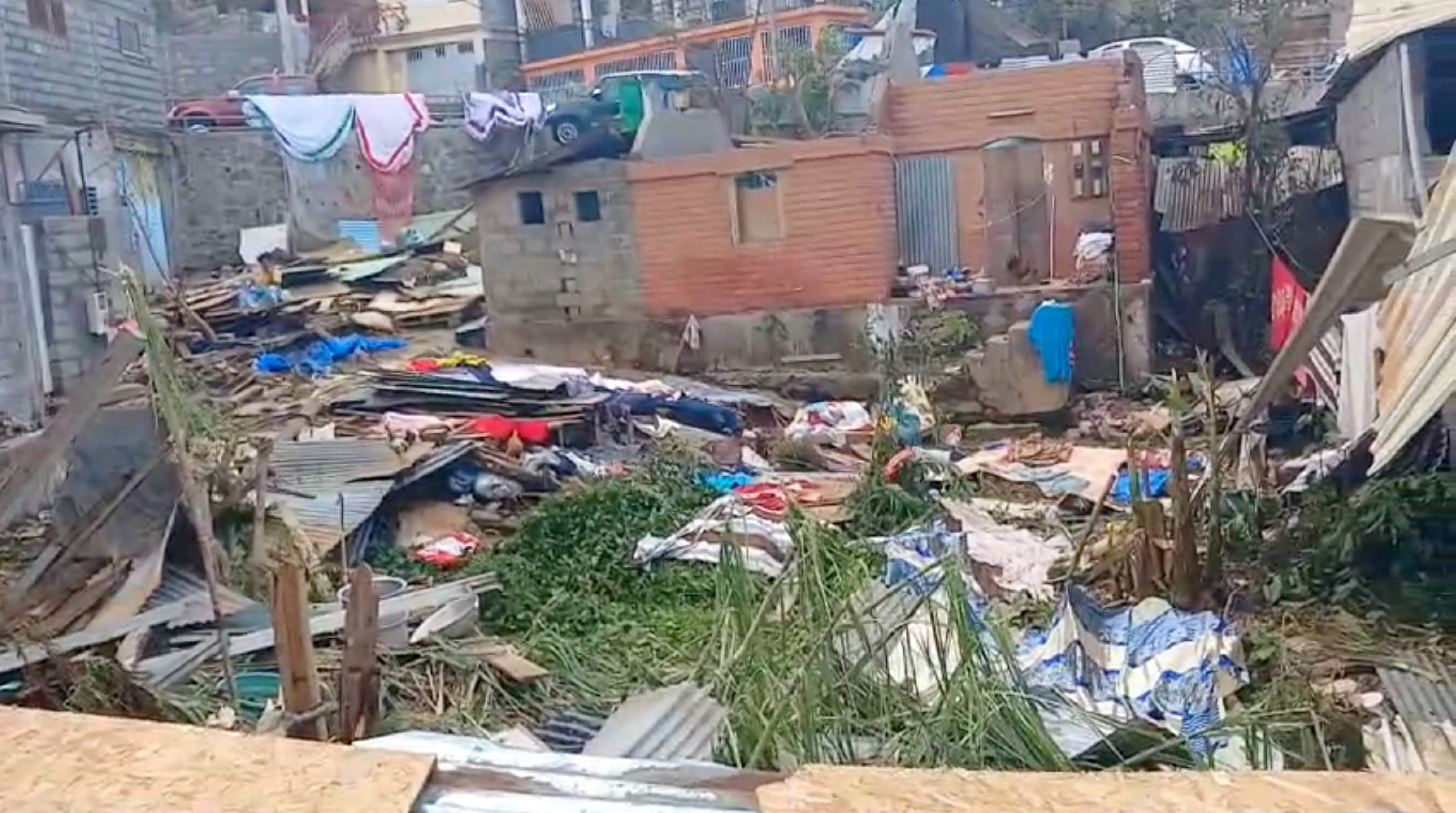Cyclone Chido, a storm of unprecedented ferocity, has ravaged the French Indian Ocean archipelago of Mayotte, leaving a trail of devastation and a potential death toll in the thousands.
The scale of the disaster is truly alarming. Prefect François-Xavier Bieuville, a senior local French official, offered a stark assessment on Mayotte La 1ère: "I think there will certainly be several hundreds, maybe we will reach a thousand, even several thousands."
While the French interior ministry admits that establishing a precise death toll is proving exceptionally difficult, stating "it will be difficult to account for all victims," the early estimates highlight the catastrophic nature of the event.

A ministry official further explained the challenges, saying: "For the toll, it's going to be complicated, because Mayotte is a Muslim land where the dead are buried within 24 hours."
The cyclone's impact on Mayotte is catastrophic. Homes, government buildings, and even the main hospital have suffered significant damage. New Prime Minister François Bayrou, appointed just days before the disaster struck, confirmed the extent of the damage to key infrastructure and highlighted the vulnerability of those living in precarious conditions. He noted that many inhabitants residing in makeshift shacks in slum areas were particularly at risk.
The human cost is heartbreaking. One hospital reported nine people in critical condition and 246 injured. Video footage from the French gendarmerie shows the extent of the destruction, revealing hundreds of makeshift homes reduced to rubble and scattered across the hillsides. These homes are often inhabited by the large undocumented migrant population that calls Mayotte home.

The experience of the residents is harrowing. Mohamed Ishmael, a resident of the capital Mamoudzou, described the scene to Reuters: "Honestly, what we are experiencing is a tragedy, you feel like you are in the aftermath of a nuclear war… I saw an entire neighbourhood disappear."
Local media images captured the chaos, showing a mother navigating flooded hospital corridors with her newborn's crib, capsized police boats, and coconut trees piercing the roofs of damaged buildings.
President Emmanuel Macron expressed his sympathy, saying: "My thoughts are with our compatriots in Mayotte, who have gone through the most horrific few hours, and who have, for some, lost everything, lost their lives."

The French government has launched a large-scale relief operation. The interior ministry has deployed 1,600 police and gendarmerie officers to aid local rescuers and firefighters from Mayotte and the neighbouring island of Réunion. Military aircraft and ships are delivering crucial supplies. An air bridge is being established from Réunion, another French overseas territory, to facilitate the delivery of aid.
Mayotte, situated approximately 8,000 km (5,000 miles) from Paris, is one of France's poorest regions. Over three-quarters of its population of just over 300,000 live below the French poverty line. The island has long endured challenges such as drought, under-investment, and gang violence, all of which have been exacerbated by the cyclone.
Adding to the complexity is the presence of over 100,000 undocumented migrants, according to the French interior ministry, many of whom live in the most vulnerable housing. Thousands have risked the dangerous journey from Comoros in recent decades, seeking better living conditions and access to French welfare services.

The impact of Cyclone Chido extended beyond Mayotte. In Comoros, authorities reported two minor injuries, 24 displaced people, and 21 destroyed homes. The cyclone's path continued to northern Mozambique, where NetBlocks, an internet monitor, reported damage to power and telecommunications infrastructure due to heavy rain and strong winds. The full extent of the damage in Mozambique is still being assessed.
Mayotte's history adds another layer to the tragedy. France colonised Mayotte in 1843 and annexed the Comoros archipelago in 1904. A 1974 referendum saw 95% of Comoros vote for independence, but 63% in Mayotte chose to remain under French rule. Grande Comore, Anjouan, and Moheli declared independence in 1975, leaving Mayotte as the only island still under French administration.
Closer to home, the neighbouring Zimbabwe is bracing for the impact of Cyclone Chido's remnants. The country's Meteorological Services Department (MSD) has warned of widespread thunderstorms across the country from today, until December 22nd. MSD head of forecast, Mr James Ngoma, explained that the cyclone’s diminished wind speed and intensity, due to increased friction over land, will combine with moisture from the Inter-Tropical Convergence Zone. He highlighted that the main influence will be from a cloud band moving westwards through both Matabeleland provinces.
“More influence over Zimbabwe is projected to be from the cloud-band emanating from the west, through both Matabeleland provinces. This should result in widespread thunderstorms throughout the week,” Mr Ngoma stated.
He further detailed the expected rainfall, noting that provinces like Matabeleland South, Bulawayo Metropolitan, southern parts of Matabeleland North, Midlands, and Masvingo could experience rainfall exceeding 50mm. While the risk of flooding is considered low due to a recent dry spell, Mr Ngoma cautioned that the heat experienced last week could lead to violent storms with lightning, strong winds, and hailstorms in some areas. Provinces of particular concern include Mashonaland East, Manicaland, Masvingo, Matabeleland South, Bulawayo Metropolitan, and the southern parts of Midlands.











